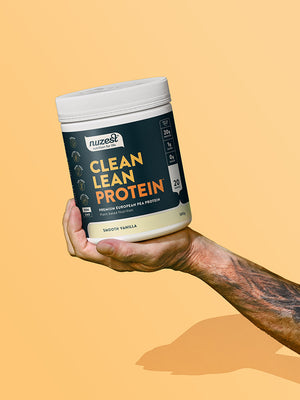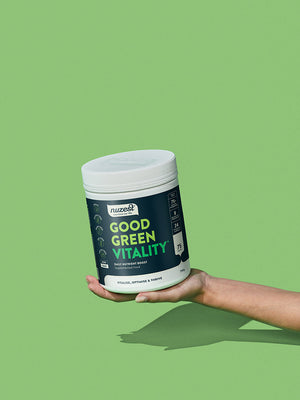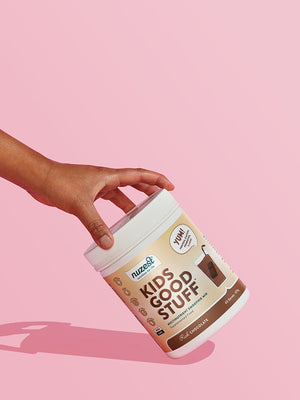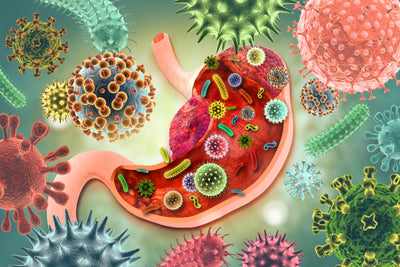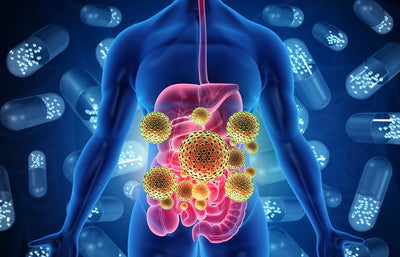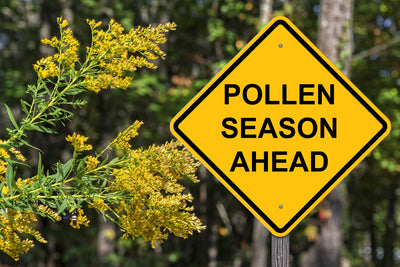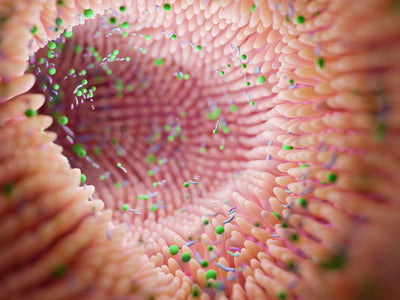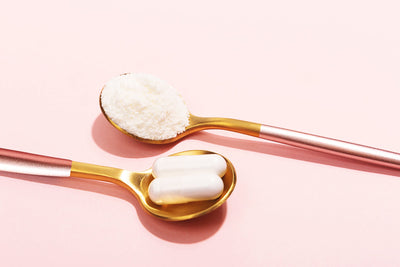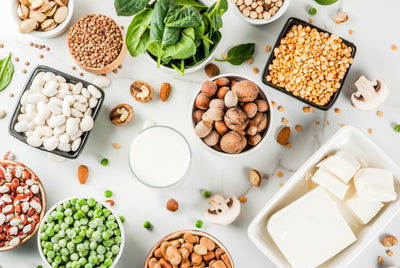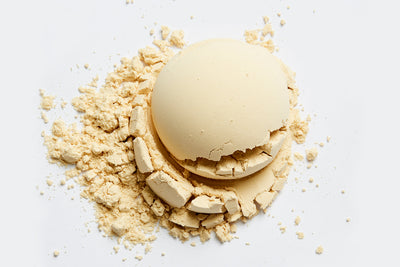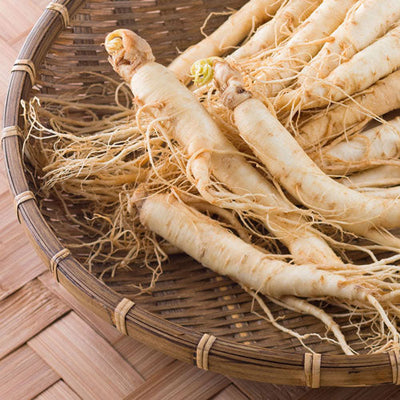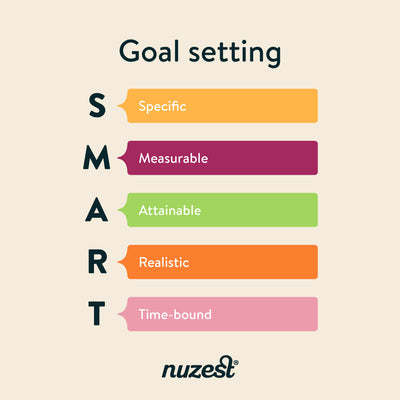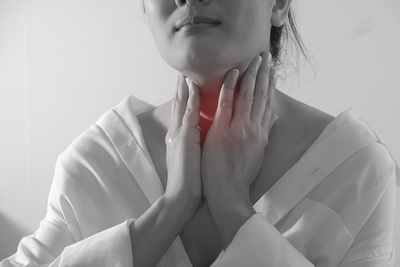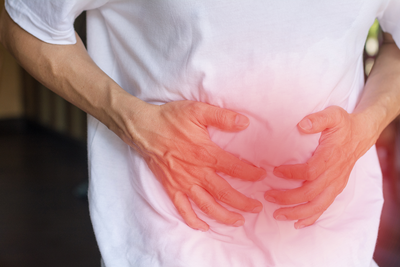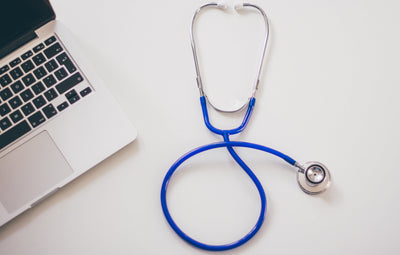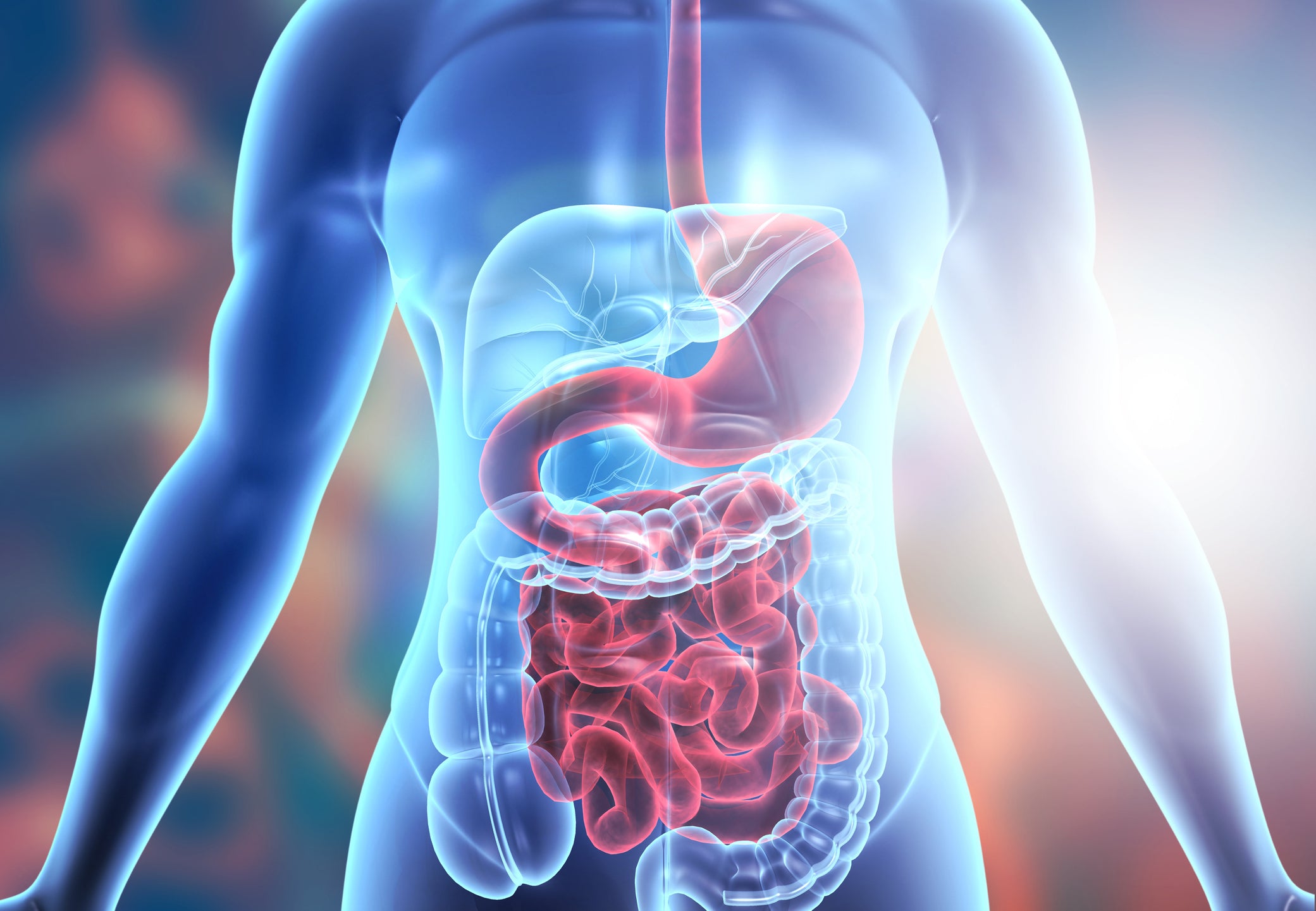
14 min read
The Gut Connection: How to Improve Your Digestion and Gut Health in 6 Steps
Posted By
Dan Palmay
Author: Megan Jones (Adv.Dip.NutMed, BHsc.NutMed)
Most of us are familiar with that uncomfortable feeling we get in our stomach after indulging in a heavy meal and with those butterflies that flutter about when we’re suddenly nervous. Interestingly, our gut is often referred to as our ‘second brain’. This ‘second brain’ not only manages but controls the entire process of digestion: from when we smell, taste and swallow our food right through to the release of enzymes in our stomach.1
Our gastrointestinal system (aka ‘gut’) is an extraordinary ecosystem which plays a crucial role our digestion, and in our overall wellbeing as well.2 Here, we'll delve into the fascinating world of gut health, exploring how it relates to our digestion process, and how a nutrient-dense diet and nutritional support like Nuzest’s daily Good Green Vitality can boost our microbiome diversity and optimise our body’s digestive processes.
Key takeaways:
- ‘Gut health’ refers to but is not limited to interactions between our gastrointestinal system, gut microbiota (gut ‘bugs’), digestive processes and our gut-brain axis.3
- Digestion begins in our mouth when we take our first bite of food and is also influenced by the smell of our food before we ingest it.4
- The 5 stages of digestion end in our large intestine, aka our ‘colon’.5
- Dysbiosis - an imbalance of the microbes (‘bugs’) in our gut can have detrimental effect on our health and wellbeing.6
- Consuming a wide variety of fresh, whole foods as close to their natural state as possible can provide essential nutrients and fibre that nourish our gut microbiota.7
Gut health and digestion
Did you know that our entire gastrointestinal system is a nine-metre-long organ, with between 800 and 900 folds, and would cover an entire tennis court if laid out flat?8 The system includes our stomach, small intestine, and our large intestine (colon). Gut health itself refers to the balance and smooth-running of this gastrointestinal system, with a complex interplay between various factors such as gut microbiota (the bacteria aka ‘bugs’), digestive enzymes, our immune system, and our gut-brain axis9 (read about our gut-brain axis here).
A healthy gut is essential for efficient digestion, nutrient absorption as well as overall physical and mental wellbeing.10 Digestion itself begins in the mouth as soon as we take our first bite of food, or some would argue beginning even before that, when we first smell the sweet aroma of our dish. Digestion is the process through which our body breaks down the food we eat into smaller molecules - which can then be absorbed and used for energy, growth, and repair.11 It's an intricate process that involves multiple stages.
Stage 1 - Mouth: Digestion technically begins in the mouth, where food is chewed and mixed with saliva containing digestive enzymes, like amylase, that initiate the breakdown of carbohydrates.4
Stage 2 - Oesophagus: The oesophagus then transports the chewed food to the stomach through rhythmic contractions called peristalsis.12
Stage 3 - Stomach: The stomach then secretes gastric juices, including hydrochloric acid and enzymes such as pepsin, to break down proteins. It also acts as a reservoir, slowly releasing the partially digested food into the small intestine.4
Stage 4 - Small Intestine: The small intestine is where the magic happens! It receives enzymes from the pancreas and bile from the liver to further break down carbohydrates, proteins, and fats. The small intestine is also the primary site for nutrient absorption.11
Stage 5 - Large Intestine (colon): The large intestine absorbs water and electrolytes, while also hosting trillions of beneficial bacteria (the ‘good bugs’) that aid in digestion, produce essential vitamins, and maintain a healthy immune system.13
Our gut microbiota
It would be remiss to discuss digestion without addressing our gut microbiota, which are critical to the process. Our gut is home to trillions of microorganisms, including bacteria, viruses, fungi, and other microbes, collectively known as the gut microbiota, and often referred to as ‘gut bugs’.14 This diverse ecosystem has a profound impact on our digestive system and overall health.
Our gut microbiota helps break down indigestible fibres, producing highly anti-inflammatory short-chain fatty acids that nourish the cells lining the large intestine.15 It also helps ferment certain compounds, assists in the absorption of minerals, and produces vitamins like vitamin K as well as some B vitamins.16 Furthermore, the gut microbiota interacts with our immune system, influencing its development and function.17 Imbalances in our gut microbiota, known as dysbiosis, can lead to digestive issues such as bloating, gas, diarrhoea, constipation and more!6 Recent research suggests that dysbiosis may also be linked to a range of health conditions, including obesity, autoimmune diseases, mental health disorders, and even certain cancers.18 Maintaining a healthy gut microbiota is crucial for our overall health and wellbeing.
Now that we understand the significance of gut health, how can we support it? Here are 6 tips to help you promote a healthy gut:
-
Eat a balanced diet:
Consume a variety of whole foods, including fruits, vegetables, whole grains, lean proteins, and healthy fats. These provide essential nutrients and fibre that nourish your gut microbiota.19 Where consuming enough wholefoods can be tricky, Nuzest’s Good Green Vitality can help to fill any nutritional gaps, containing 75+ premium wholefood ingredients to support all 11 body systems.
-
Stay hydrated:
Drink an adequate amount of water throughout the day to support digestion and maintain optimal bowel function.20
-
Prioritise fibre:
Include fibre-rich foods like legumes, nuts, seeds, and whole grains in your diet. Fibre promotes regular bowel movements and also feeds our beneficial gut bacteria.21 Supplementing with our daily and delicious multi-nutrient formula Good Green Vitality can also provide our friendly gut bugs with the fibre that they love-so they can grow, diversify and improve our gut health!
-
Minimise processed foods and added sugars:
Highly processed foods and excess sugar can disrupt the balance of your gut microbiota. Opt for whole, unprocessed foods whenever possible.22
-
Manage stress:
Practise stress management techniques such as meditation, deep breathing exercises, or engaging in hobbies that help you relax. Chronic stress can negatively impact gut health.23
-
Antibiotics with caution:
While antibiotics are essential for fighting bacterial infections, they can also disrupt the balance of gut bacteria. If prescribed antibiotics, discuss probiotic supplementation with your healthcare provider to support gut health at the same time.24
Our gut is a remarkable and intricately connected system that affects far more than just our digestion. By understanding the importance of gut health and implementing healthy lifestyle habits, we can support our digestive system, boost our overall wellbeing, and live a life full of vitality!
References:
- Contributors WE. How to Improve Your Gut Health and Mental Health [Internet]. WebMD. 2021. Available from: https://www.webmd.com/digestive-disorders/how-to-improve-your-gut-health-and-mental-health
- Moles L, Otaegui D. The Impact of Diet on Microbiota Evolution and Human Health. Is Diet an Adequate Tool for Microbiota Modulation? Nutrients. 2020 Jun 2;12(6):1654.
- Wiertsema SP, van Bergenhenegouwen J, Garssen J, Knippels LMJ. The Interplay between the Gut Microbiome and the Immune System in the Context of Infectious Diseases throughout Life and the Role of Nutrition in Optimizing Treatment Strategies. Nutrients [Internet]. 2021 Mar 9 [cited 2021 Sep 25];13(3):886. Available from: https://www.ncbi.nlm.nih.gov/pmc/articles/PMC8001875/
- Sensoy I. A review on the food digestion in the digestive tract and the used in vitro models. Current Research in Food Science [Internet]. 2021 Jan 1;4:308–19. Available from: https://www.sciencedirect.com/science/article/pii/S2665927121000307
- Azzouz LL, Sharma S. Physiology, Large Intestine [Internet]. Nih.gov. StatPearls Publishing; 2019. Available from: https://www.ncbi.nlm.nih.gov/books/NBK507857/
- Banaszak M, Górna I, Woźniak D, Przysławski J, Drzymała-Czyż S. Association between Gut Dysbiosis and the Occurrence of SIBO, LIBO, SIFO and IMO. Microorganisms. 2023 Feb 24;11(3):573.
- Zhang P. Influence of Foods and Nutrition on the Gut Microbiome and Implications for Intestinal Health. International Journal of Molecular Sciences. 2022 Aug 24;23(17):9588.
- Helander HF, Fändriks L. Surface area of the digestive tract – revisited. Scandinavian Journal of Gastroenterology. 2014 Apr 2;49(6):681–9.
- Wiertsema SP, van Bergenhenegouwen J, Garssen J, Knippels LMJ. The Interplay between the Gut Microbiome and the Immune System in the Context of Infectious Diseases throughout Life and the Role of Nutrition in Optimizing Treatment Strategies. Nutrients [Internet]. 2021 Mar 9;13(3):886. Available from: https://www.ncbi.nlm.nih.gov/pmc/articles/PMC8001875/
- Conlon M, Bird A. The Impact of Diet and Lifestyle on Gut Microbiota and Human Health. Nutrients [Internet]. 2014 Dec 24;7(1):17–44. Available from: https://www.ncbi.nlm.nih.gov/pmc/articles/PMC4303825/
- Patricia JJ, Dhamoon AS. Physiology, Digestion [Internet]. National Library of Medicine. StatPearls Publishing; 2020. Available from: https://www.ncbi.nlm.nih.gov/books/NBK544242/
- Patel KS, Thavamani A. Physiology, Peristalsis [Internet]. PubMed. Treasure Island (FL): StatPearls Publishing; 2022. Available from: https://www.ncbi.nlm.nih.gov/books/NBK556137/
- Azzouz LL, Sharma S. Physiology, Large Intestine [Internet]. Nih.gov. StatPearls Publishing; 2019. Available from: https://www.ncbi.nlm.nih.gov/books/NBK507857/
- Ursell LK, Metcalf JL, Parfrey LW, Knight R. Defining the human microbiome. Nutrition Reviews. 2012 Aug;70(1):S38–44.
- Akhtar M, Chen Y, Ma Z, Zhang X, Shi D, Khan JA, et al. Gut microbiota-derived short chain fatty acids are potential mediators in gut inflammation. Animal Nutrition. 2022 Mar;8:350–60.
- den Besten G, van Eunen K, Groen AK, Venema K, Reijngoud DJ, Bakker BM. The role of short-chain fatty acids in the interplay between diet, gut microbiota, and host energy metabolism. Journal of Lipid Research [Internet]. 2013 Jul 2;54(9):2325–40. Available from: https://www.ncbi.nlm.nih.gov/pmc/articles/PMC3735932/
- Belkaid Y, Hand Timothy W. Role of the Microbiota in Immunity and Inflammation. Cell [Internet]. 2014 Mar;157(1):121–41. Available from: https://www.ncbi.nlm.nih.gov/pmc/articles/PMC4056765/
- DeGruttola AK, Low D, Mizoguchi A, Mizoguchi E. Current Understanding of Dysbiosis in Disease in Human and Animal Models. Inflammatory Bowel Diseases [Internet]. 2016 May;22(5):1137–50. Available from: https://www.ncbi.nlm.nih.gov/pmc/articles/PMC4838534/
- Zhang P. Influence of Foods and Nutrition on the Gut Microbiome and Implications for Intestinal Health. International Journal of Molecular Sciences. 2022 Aug 24;23(17):9588.
- Popkin BM, D’Anci KE, Rosenberg IH. Water, Hydration, and Health. Nutrition Reviews [Internet]. 2010 Jul 20;68(8):439–58. Available from: https://www.ncbi.nlm.nih.gov/pmc/articles/PMC2908954/
- Cronin P, Joyce SA, O’Toole PW, O’Connor EM. Dietary Fibre Modulates the Gut Microbiota. Nutrients [Internet]. 2021 May 13;13(5):1655. Available from: https://www.ncbi.nlm.nih.gov/pmc/articles/PMC8153313/
- Satokari R. High Intake of Sugar and the Balance between Pro- and Anti-Inflammatory Gut Bacteria. Nutrients [Internet]. 2020 May 8;12(5):1348. Available from: https://www.ncbi.nlm.nih.gov/pmc/articles/PMC7284805/
- Madison A, Kiecolt-Glaser JK. Stress, depression, diet, and the gut microbiota: human–bacteria interactions at the core of psychoneuroimmunology and nutrition. Current Opinion in Behavioral Sciences [Internet]. 2019 Aug;28(3):105–10. Available from: https://www.sciencedirect.com/science/article/pii/S2352154618301608
- Ramirez J, Guarner F, Bustos Fernandez L, Maruy A, Sdepanian VL, Cohen H. Antibiotics as Major Disruptors of Gut Microbiota. Frontiers in Cellular and Infection Microbiology. 2020 Nov 24;10.
Related news
min read
An Introduction to Gut Health & Nutrition – 5 Must See Articles
Gut health significantly affects overall wellbeing, influencing brain function, immunity, and metabolism. A balanced gut microbiota, influenced by diet and environment, can potentially enhance health, aid digestion, and reduce allergies. The roles of probiotics and prebiotics in gut health are also discussed.
min read
Probiotics vs. Prebiotics
Unleash gut health with probiotics and prebiotics! Strengthen digestion, immunity, and overall well-being. Try Nuzest's Good Green Vitality for convenient support with 8 billion CFU of probiotics. Take charge now!
min read
The Link Between Gut Health & Allergies - Plus 5 Top Tips to Help
Discover the link between gut health and allergies, and how the gut microbiome influences the body's immune response to allergens. Learn how adopting a balanced diet with prebiotics and probiotics can support gut health, reducing the risk of allergic reactions. Explore solutions for allergy relief and fostering a healthier gut with Nuzest’s multi-nutrient formula, Good Green Vitality.
min read
The Great Diet Debate: Unravelling the Tapestry of Popular Eating Plans
Exploring popular diets such as the Mediterranean, Ketogenic, Plant-Based, Paleo, and Intermittent Fasting, this overview highlights their principles, benefits, and considerations. It emphasizes the importance of finding a dietary pattern that aligns with individual health goals and preferences, while suggesting the potential benefits of incorporating a multi-nutrient supplement for overall health.
min read
Does Gut Health Affect Your Immune System? | Do These 6 Things
The gut microbiome, which consists of trillions of bacteria in our digestive tract, plays a crucial role in supporting our immune system and overall health. Consuming probiotics and prebiotics, staying hydrated, managing stress, limiting processed foods, and engaging in outdoor activity and exercise are effective strategies to promote a healthy gut and enhance immunity.
min read
What is Collagen? Types, Sources and Benefits of Supplementation
Collagen is essential for joints, bones, muscles, ligaments, tendons, cartilage, skin, hair and nails.2 It is one of the primary structural proteins of connective tissue and plays a crucial role in the body by cushioning, strengthening, hydrating, binding, and connecting tissues together.3 Connective tissues are able to provide physical and mechanical support through the collagen, elastic and reticular fibres
min read
Kids Good Stuff for Skin Health
How can you ensure your kids have healthy skin? A part from the obvious, what nutrients can we provide our kids to ensure their skin stays in tip top shape?
min read
Maximising Mood In Your Kids
Almost 1 in 7 children and adults aged 4-17 had been diagnosed with a mental health disorder. Amy Butler discusses good nutrition and lifestyle modifications, that can help to reduce the risk.
min read
Long-Lasting Energy For Kids
Children and adolescents are going through massive periods of growth and development. To keep up with the demands of school, extracurricular activities, sports and friendships, kids often need a bit of an energy boost. In our latest blog we break down some specific nutrients for energy, to help support growing kids, and the best places to source them from.
min read
Setting Health Goals & Staying Motivated in 2021
Use this tried and tested goal strategy to set smaller, specific goals to avoid the overwhelm of unrealistic and vague health objectives.







